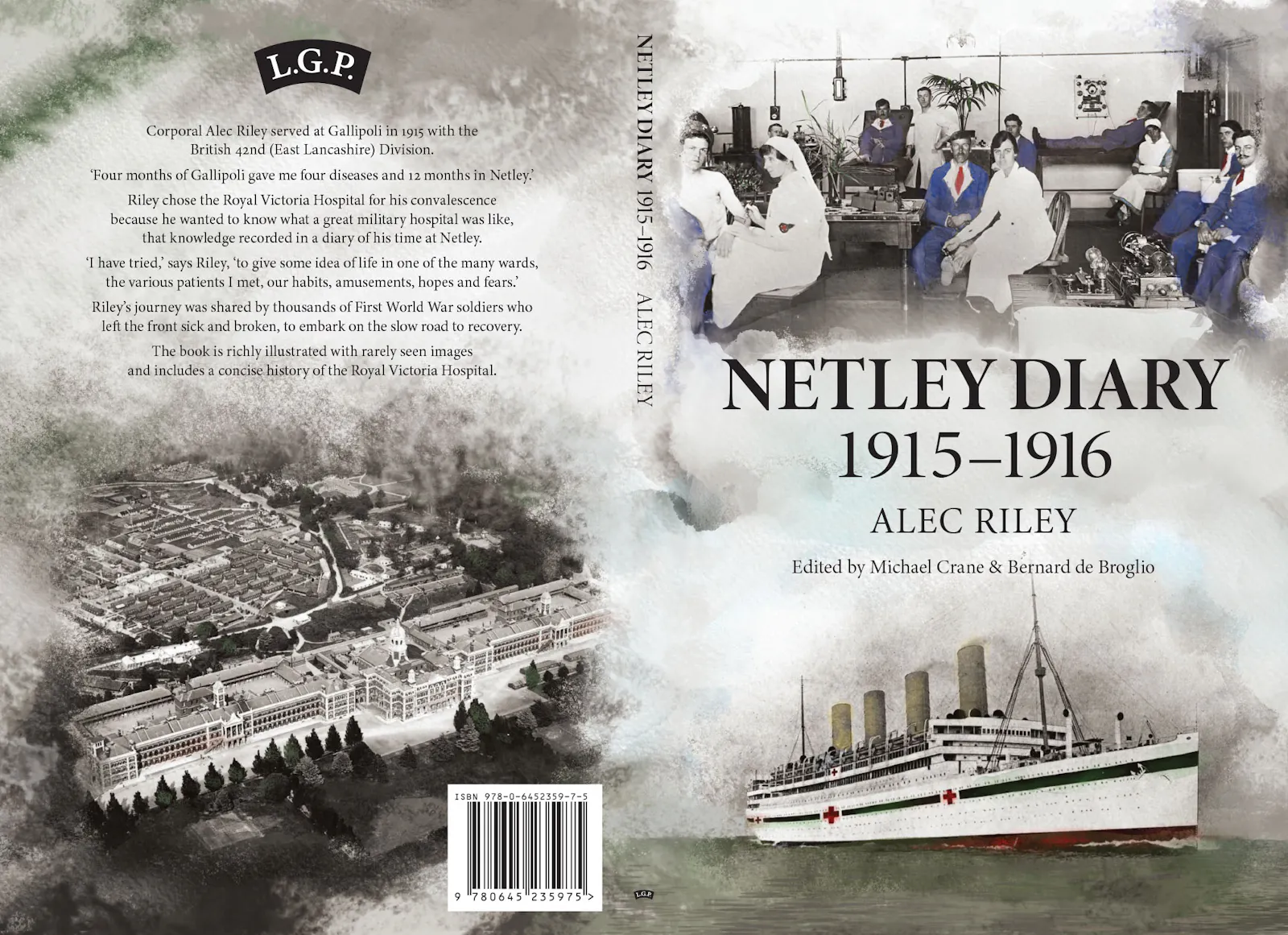From Helles to Netley
I was after all the experiences I could collect, and wanted to know what a great military hospital was like … I had to go to one, and decided on the grand style of doing it.

Corporal Alec Riley was a signaller in the British Army’s 42nd (East Lancashire) Division who served at Gallipoli in 1915 (Opens in a new window). Four months on the peninsula left him debilitated, suffering nine septic sores and no less than four diseases — diphtheria, jaundice, enteritis and dysentery.
Riley was evacuated by sea to the Greek island of Lemnos, 50 miles from Cape Helles on the peninsula. Here he survived five weeks in the care of an Australian field hospital before being stretchered onto a hospital ship bound for England. It was during the passage home that Riley decided on ‘the grand style of doing it’ and chose the Royal Victoria Hospital, Netley, as his destination.
When it opened in 1863, Netley was the largest military hospital in the world, with more than 1,000 beds. During the First World War, capacity was doubled, and beds filled the corridors. Two temporary hutted hospitals were erected in the grounds behind the main building as the tide of sick and wounded from Gallipoli, the Western Front and other theatres of war rose.
‘I have tried,’ says Riley, ‘to give some idea of life in one of the many wards, the various patients I met, our habits, amusements, hopes and fears.’
Netley Diary 1915–1916 chronicles Riley’s last days on Gallipoli, his experiences of No. 1 Australian Stationary Hospital at Mudros, his passage home on the hospital ship Aquitania and his 11 months at Netley and its auxiliary hospitals, Shirley and Shorne Hill.
Available now
Paperback and ebook are now available from Amazon, with dust-jacketed hardback coming soon.
If you purchase from Amazon, please leave a review. It’s a big help!
Disclosure: As an Amazon Associate, we earn a small commission if you decide to make a purchase after clicking these links. There is no cost to you.
Life in a great military hospital
With dry humour, Riley relates the small mischiefs between the convalescents and the medical staff. He tells of concert parties in the hospital’s theatre, and recalls the songs of the time. He reflects on the efforts of the chaplains, whose efforts to elevate the ‘army in blue’ often missed the mark.
One spoke on the evils of the rum ration, until a voice shouted ‘Have you ever been over the top?’
Another chose to speak on the good that war does. ‘An unsavoury subject in a military hospital,’ thought Riley, ‘but we were curious to hear what good he thought it did.’
Most of all, Riley relates the experiences of a soldier, sick and broken, taking the journey shared by so many away from the front and on the slow road to recovery, a journey in his case that took more than a year.
The book is richly illustrated with rarely seen images and three specially-produced maps.
littlegully.com/books/netley-diary-1915-1916 (Opens in a new window)


